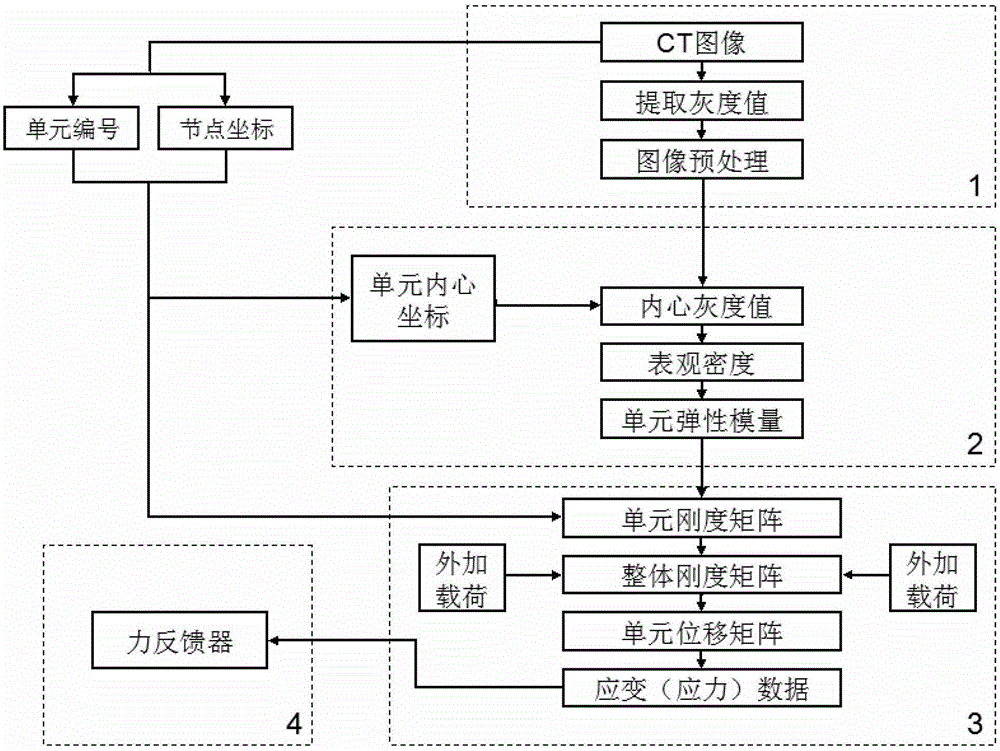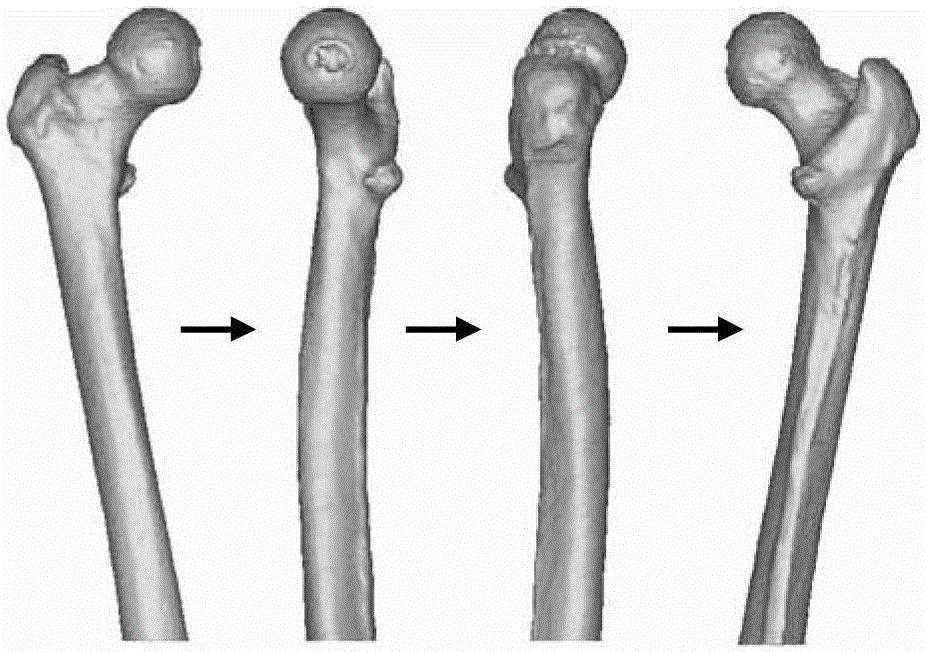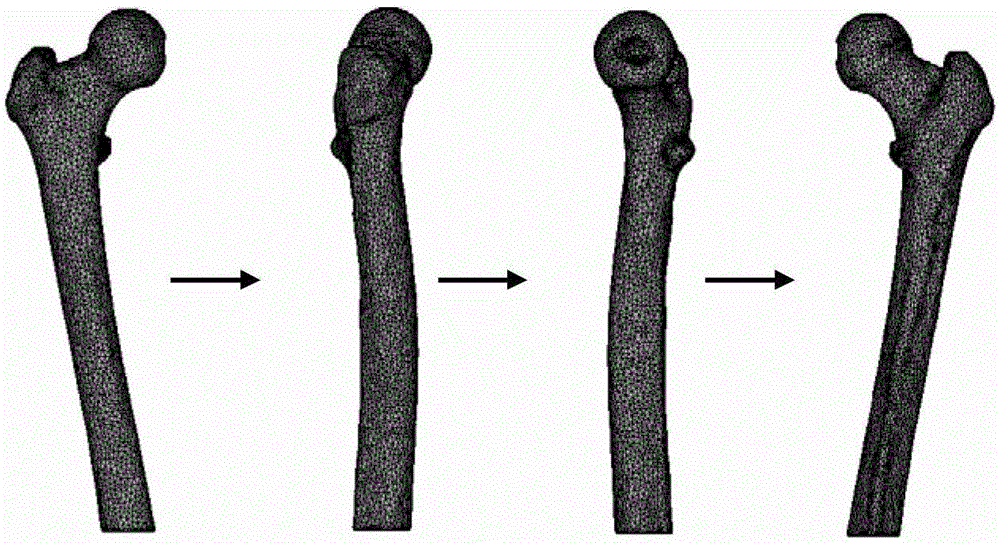Femoral biomechanical finite element analysis system based on force feedback
A biomechanical and finite element technology, applied in special data processing applications, instruments, electrical digital data processing, etc., can solve the problems of unpopular application, low success rate of external surgery, complicated operation, etc., to achieve increased immersion and small memory , The effect of simple program operation
- Summary
- Abstract
- Description
- Claims
- Application Information
AI Technical Summary
Problems solved by technology
Method used
Image
Examples
specific Embodiment approach 1
[0020] Specific implementation mode one: as figure 1 As shown, a kind of femoral biomechanical finite element analysis system based on force feedback described in this embodiment includes:
[0021] Femoral CT image gray value extraction module 1, femoral elastic modulus assignment module 2, femoral biomechanics finite element analysis module 3, force feedback module 4;
[0022] Femur CT image gray value extraction module 1, is used for importing the CT image of multiple formats, and this image is stored as the space three-dimensional data matrix with gray value as element; Femoral CT image gray value extraction module 1 is also used for Preprocessing the obtained CT gray value information: using the gray threshold method to screen out the femur, and manually erasing the data of noise and adhesion tissue on the edge, and retaining the three-dimensional data matrix with the femur as the research object;
[0023] The femoral modulus of elasticity assignment module 2 is used to o...
specific Embodiment approach 2
[0028] Specific implementation mode two: as Figure 1-7 As shown, in the present embodiment, the concrete process that described femoral modulus of elasticity assignment module 2 realizes its function is:
[0029] 1) Calculate the center of the tetrahedron
[0030] The node coordinates can be obtained from the finite element mesh model, and the inner coordinates can be calculated through the four node coordinates of the tetrahedron; let the tetrahedron A 1 A 2 A 3 A 4 Vertex A of i The area of the opposite side is S i (i=1, 2, 3, 4), vertex A i The coordinates are (x i ,y i ,z i )(i=1, 2, 3, 4), the coordinates of the center of the tetrahedron are (x 1 ,y 1 ,z 1 ),but
[0031] x 1 = s 1 x ...
specific Embodiment approach 3
[0078] Specific implementation mode three: as Figure 1-7 As shown, in the present embodiment, the specific process of the biomechanical finite element analysis module 3 of the femur to realize its function is as follows:
[0079] The finite element method is a numerical method for approximately solving general continuous domain problems, and the numerical solution is obtained by using the finite element method to solve the problem. The process of solving it includes discrete, set, establishment of differential equations, linear algebraic equations and solving. Displacement is often selected as the unknown quantity for series equations, and the principle of minimum potential energy and principle of virtual work are often used for solving. Specific steps are as follows:
[0080] 1) Discretization of structure:
[0081] The first step in finite element analysis is the discretization of the structure. When dealing with the tissue structure of the irregular surface, it is discr...
PUM
 Login to View More
Login to View More Abstract
Description
Claims
Application Information
 Login to View More
Login to View More - R&D
- Intellectual Property
- Life Sciences
- Materials
- Tech Scout
- Unparalleled Data Quality
- Higher Quality Content
- 60% Fewer Hallucinations
Browse by: Latest US Patents, China's latest patents, Technical Efficacy Thesaurus, Application Domain, Technology Topic, Popular Technical Reports.
© 2025 PatSnap. All rights reserved.Legal|Privacy policy|Modern Slavery Act Transparency Statement|Sitemap|About US| Contact US: help@patsnap.com



